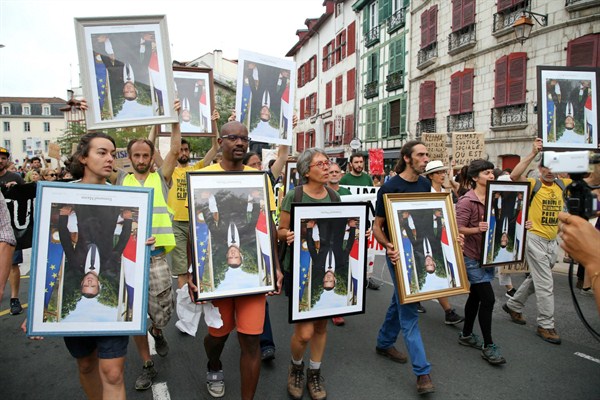Anti-government protesters have vandalized the offices of French officials aligned with President Emmanuel Macron in recent weeks, part of an ongoing backlash against the recent approval of a free trade agreement between Canada and the European Union. The Comprehensive Economic and Trade Agreement, or CETA, was ratified by the French legislature in late July, prompting farmers and environmental groups to target the offices of legislators and local officials who belong to Macron’s Republic on the Move party. In an email interview with WPR, Gerry Alons, an assistant professor of international relations and a trade policy expert at Radboud University in the Netherlands, explains the controversy behind CETA and how the ongoing protests will complicate the ratification process for another recent deal between the EU and South America’s Mercosur trade bloc.
World Politics Review: Why did ratification of the Canada-EU trade agreement in the French National Assembly face so much opposition, including from Macron’s own party?
Gerry Alons: The debate around the ratification of CETA has to be considered against the backdrop of increasing politicization of trade negotiations worldwide, partly due to the increasing importance voters attach to the environmental and social aspects of trade. In the case of CETA, the negotiations became controversial in Europe because they coincided with a far more visible proposed trade agreement, the Transatlantic Trade and Investment Partnership with the U.S.,* and opposition to the two initiatives became intertwined. While trade negotiations used to happen relatively free from public scrutiny, growing concerns about climate change, food safety standards and the adverse effects of globalization have pushed free trade negotiations squarely into the public eye.

